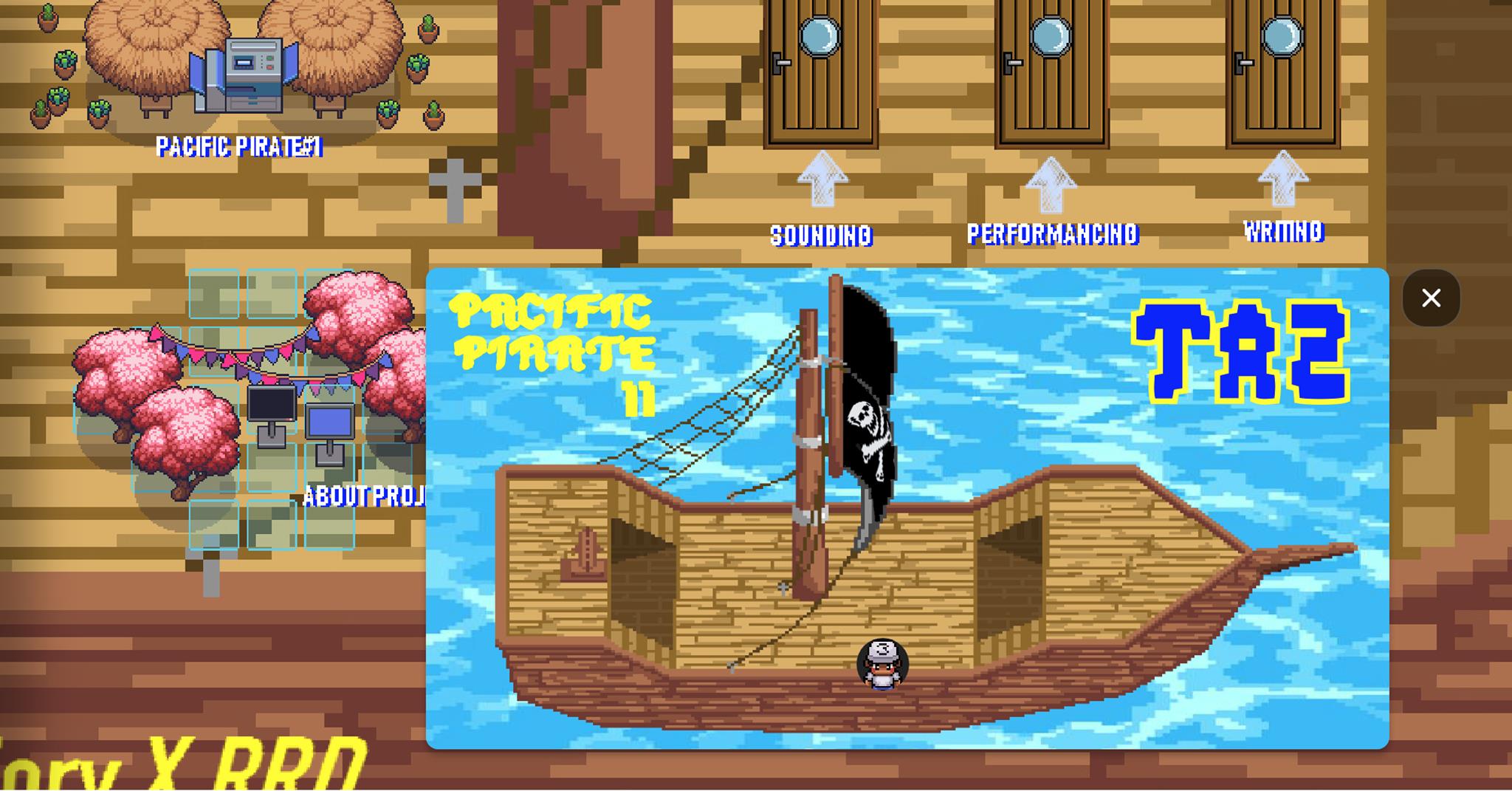“I would strongly reject the criticism that the TAZ itself is “nothing but” a work of art, although it may have some of the trappings. […]Art in the World of Art has become a commodity; but deeper than that lies the problem of re-presentation itself, and the refusal of all mediation. In the TAZ art as a commodity will simply become impossible; it will instead be a condition of life.”
- T.A.Z.: The Temporary Autonomous Zone (1985), Hakim Bey
Pacific Pirate is a long term project launched by Writing FACTory(TW) and RRD(MX) in late 2018. By examining the concept of ownership and expanding the discussion from that of information, technique and culture production to that of relationship and history, the project aims at discovering the alikeness of Taiwan and Mexico with the history of being colonized and the existence of domineering neighbors. In addition, it tries to develop possible solutions for contemporary predicaments through practice.
The project has pirated several ways of knowledge production: Pacific Pirate#1 took the form of exhibition, which includes the open call project “Re-DBT” and the database “#PiratePirateManifesto”. Pacific Pirate#2: TAZ took the form of research-based residency programs with three keywords: sounding, writing and performing, three artists from each country are invited to participate in the practice. Their roles contain but are not limited to artist, curator, researcher, musician and independent journalist. In the book “T.A.Z.: The Temporary Autonomous Zone” published in 1985, Hakim Bey suggested that one should substitute temporary state for permanence and uprising for revolution. He proposed the idea “TAZ”, a space-time which can “exist” nomadically not only in information-space but also in the real world. Considering three keywords, six practitioners will elaborate on six ways of creating TAZ. Besides virtual and physical events, PP#2 TAZ also utilize Gather Town as an affiliated exhibition space. The contents of research and practice will continuously be added throughout the project.
【Organizer】
Kuandu Museum of Fine Arts
【Project Initiator】
Writing FACTory (TW)
RRD(Red de Reproducción y Distribución)(MX)
【Project Participants】
Cevo Yang(TW)
Concepcion Huerta(MX)
Yunjie Liao (TW)
Sandra Sánchez(MX)
Xia Lin(TW)
Yutsil Cruz(MX)
*This project is sponsored by Grants for Cultural Exchanges and Collaborative Projects with Personnel between Taiwan and Latin America, Ministry of Culture, Taiwan.
"Rechazo enérgicamente la crítica de que el TAZ en sí mismo es nada más una obra de arte, aunque pueda tener algunos adornos. [...] El arte se ha convertido en una mercancía; pero más profundo que eso es el problema de la propia re-presentación, y el rechazo de toda mediación. En la TAZ el arte como mercancía será simplemente imposible; en su lugar será una condición de vida".
- “Zona Temporalmente Autónoma, Hakim Bey"
Pacific Pirate es un proyecto de Writing FACTory(TW) y RRD(MX) que comenzó a finales de 2018. El objetivo es reexaminar el concepto de propiedad, ampliando la discusión acerca de cómo se distribuye información, a través de medios impresos y audiovisuales. Nos interesa analizar la similitud que existe entre Taiwán y México en términos de la experiencia colonial y los distintos procesos de producción cultural.
Pacific Pirate#1: fue la primera fase de este proyecto, el cual resultó en una exposición. Pacific Pirate#2 TAZ: es un programa de residencia basado en investigación a partir de tres palabras clave: sonar, escribir y actuar. En esta etapa se invitó a tres artistas de cada país. Retomando la idea de una Zona Temporalmente Autónoma, en donde Hakim Bey propone la idea de "TAZ" como un espacio-tiempo que puede existir no sólo en el espacio de la información sino también en el mundo real de forma nómada.
【Organiza】
Museo de Bellas Artes de Kuandu
【Iniciadores del proyecto】
Writing FACTory (TW)
RRD(Red de Reproducción y Distribución)(MX)
【Participantes en el proyecto】
Cevo Yang(TW)
Concepción Huerta(MX)
YunjieLiao (TW)
Sandra Sánchez(MX)
Xia Lin(TW)
Yutsil Cruz(MX)
*Este proyecto está patrocinado por la Beca para Intercambios Culturales y Proyectos Colaborativos entre Taiwán y América Latina, del Ministerio de Cultura de Taiwán.

